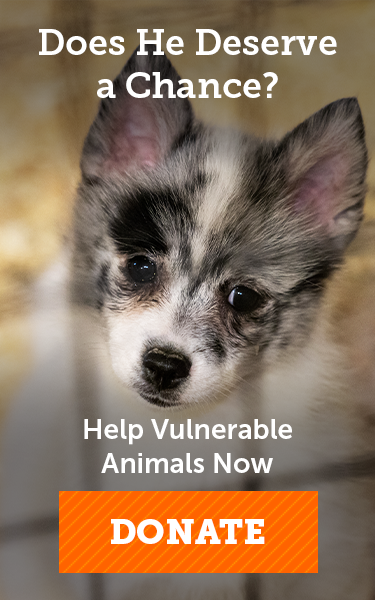
ASPCA Spay/Neuter Advocates Go Door-to-Door on Two Coasts to Protect Community Pets
The last Tuesday of every February is World Spay Day. To celebrate this day—and highlight the life-saving importance of spay/neuter services—we checked in with some of the ASPCA’s own Spay/Neuter Advocates who are on the ground every day making a difference in the lives of animals and their families.

On a recent, frigid January morning in East Harlem, ASPCA community advocates Selena Edwards and Arturo Arana visited Theresa J. to check on her eight-month-old pit bull, Coco, who had been spayed two weeks before.
Selena and Arturo first met Theresa and Coco last September. They offered a free ID tag for Coco, whom Theresa had adopted from a friend. Theresa considered letting Coco have “just one litter,” but decided to have her spayed after being encouraged by Selena and Arturo.
Coco is one of thousands of owned dogs and cats who live in high poverty areas with limited access to veterinary care and or other pet resources, and where pets are most at risk of neglect, cruelty, relinquishment to shelters, and euthanasia.
But with focused initiatives, the ASPCA is concentrating its attention on pets—like Coco—most at risk.
ASPCA CARES (Community, Advocacy, Resources, Enrichment, and Service) employs advocates who visit communities one city block at a time to ensure every resident or family on that block has the opportunity to take advantage of the ASPCA’s free and low-cost services.
Their dedication pays off. In 2014, the ASPCA provided 3,782 spay/neuter surgeries in New York and 3,359 in Los Angeles. These numbers comprise 16 percent of the ASPCA’s 2014 total of 42,584 spay/neuter surgeries, more than ever before in a single year in the organization’s 148-year history.*
Christopher Keith and Desire Menendez, community advocates who canvas the Claremont Village area of the Bronx, go door-to-door in the Morris Houses, a public housing complex comprising several blocks. Across the country, community advocate Elizabeth Gamboa knocks on doors in South L.A. Like her counterparts in NYC, Elizabeth offers free ID tags in addition to information on spay/neuter services, and the many benefits they provide
“Our community advocates engage residents in a very grassroots way—knocking on doors and introducing themselves,” says Jocelyn Kessler, Director of Operations for the ASPCA Spay/Neuter Operations team. “They build trust with residents to improve the quality of lives for both the animals and the people who care for them.”
ASPCA advocates Lisa DeLarios and Isadora Peraza-Martinez regularly visit neighborhoods in the Mott Haven section of the Bronx. “We meet a lot of pets that are related and that helps spread the word,” says Isadora. “In one building, all of the cats were from the same source—they were all ‘Bubbles’ babies,” said Lisa.
Lisa and Isadora convinced Bubbles’ owner to have her spayed, and even transported the black and white tuxedo cat to the ASPCA on January 14 for pre-surgery blood work. They are now targeting other cats and dogs in the building.
Margie O., a client in the Bronx, welcomes Chris and Desire each time they visit with home-made corn cakes. Although Margie has undergone two open-heart surgeries and is raising her five-year-old granddaughter, she made sure all of her dogs were altered with the ASPCA’s help.
As Chris says, “If that doesn’t motivate you, what does?”
To learn more about the benefits of Spay/Neuter, check out our Top 10 Reasons to Spay or Neuter your Pet. To locate a low-cost Spay/Neuter program in your community, use our database here.
*The ASPCA provided 16,602 surgeries to NYC residents within the targeted areas via its mobile spay/neuter clinics, which have been providing free and low-cost spay/neuter since 1997. Two stationary clinics in New York—at 92nd Street in Manhattan and in Glendale, Queens—serve the rescue community, ASPCA Adoption Center, Animal Care & Control of NYC, Community Intervention Advocacy (CIA) clients, and Trap-Neuter-Return (TNR) programs—and have doubled their capacity, with 18,840 surgeries last year. The ASPCA also provided 225 grants totaling over $3.7 million dollars to other organizations nationwide for spay/neuter.
